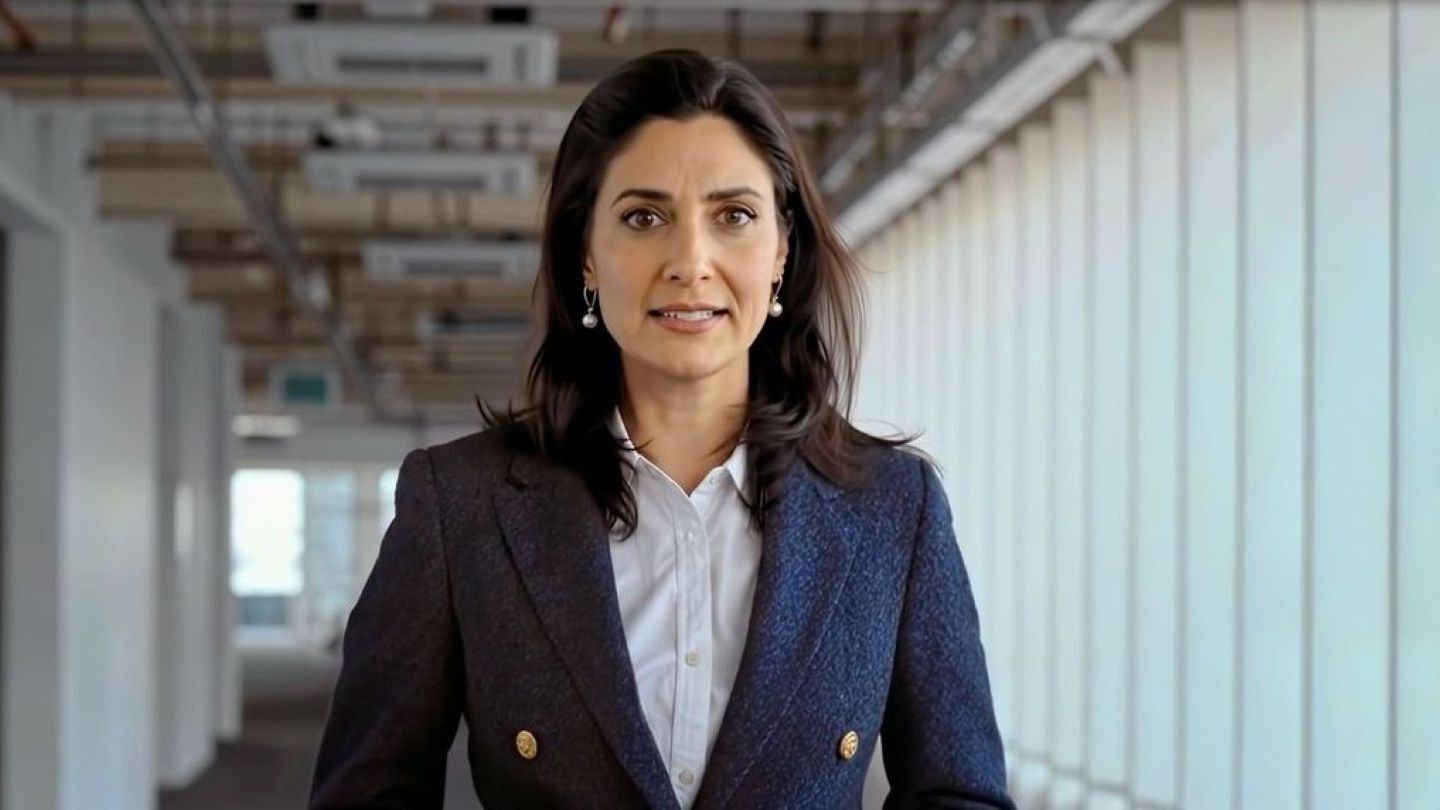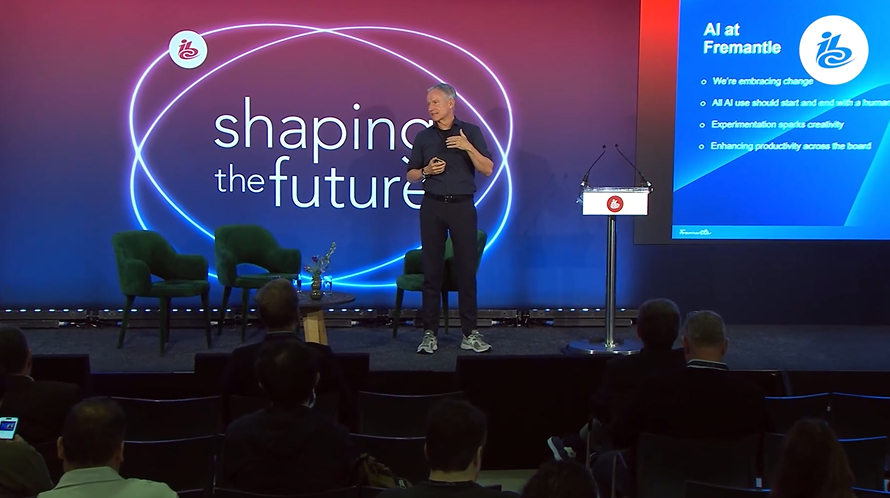IBC Conference: ProSiebenSat 1 PULS 4’s Thomas Gruber and Fremantle’s Jens Richter explored how broadcasters can survive and thrive in an AI-driven, social media-saturated landscape.
Overall, Thomas Gruber, Co-CEO of ProSiebenSat 1 PULS 4, emphasised the role of local culture as a safeguard for authenticity, while Jens Richter, CEO Commercial and International at Fremantle, pointed to the need for global scale, and both warned that fake and manipulated videos threaten trust across the industry.
Austria Television’s hyperlocal blueprint
Gruber opened with a stark challenge: “By 2030, up to 90% of content could be created by AI. So, here’s the big question for broadcasters: how do we stay relevant? How do we grow? The answer isn’t more polish, it’s more human.”
For Gruber, Austria’s unique market requires authenticity above all. “Austria’s media market is shaped by linguistic overlap, delayed liberalisation, and cross-border competition,” he said. “It’s a market that demands strategic thinking, local insights, and a deep understanding of its unique structure.”
That philosophy is embodied in addressable TV (ATV). “ATV wins with real local stories. It connects with viewers through formats that are raw, authentic, and emotional.” He added, “ATV proves that deep cultural understanding, a commitment to raw authenticity, and the courage to be unremorsefully yourself are the keys to building the last media powers.”
The opportunity and risk of AI
While Gruber sees potential in AI to increase efficiency and creativity, he stressed the risks of losing authenticity, “AI [creates] too much content and [has] the risk of losing authenticity, but it also opens up new opportunities,” he said. “Human content will serve as the master template for AI – authenticity, emotional depth, and cultural nuance are qualities AI cannot replicate.”
Both he and Richter raised alarms about manipulated media. For Gruber, the danger is existential. “Without regulation for fake news – we’re losing it,” he said. “I have two daughters, and it’s horrible. I try to get them away, because they have to understand. You can’t just leave them in the digital world.”
Fremantle’s global approach
Jens Richter echoed Gruber’s focus on localisation but brought in Fremantle’s international perspective. “We produce in 28 countries around the world. Last year, we produced more than 12,000 hours of programming. We sold more than 30,000 hours of programming to broadcasters and platforms.”
Community connection, he said, drives success: “Really local culture, the local audiences, connecting with the local habits and cultures – that’s key for us.”
He also drew attention to the ways that social media and attention spans are reshaping production. “When you launch a drama now, something needs to happen in the first scene – there needs to be this hook.” He also emphasised that broadcasters need to be realistic about how people today are watching television. “Our audiences consume a lot of social media,” he said. “You have to assume they are on their second screen.”
Combating fakes, building trust
Richter underscored how fake and manipulated videos are already damaging established brands. “We did have an issue with YouTube. We found millions and millions of views generated with fake videos where people manipulated Got Talent,” he said. “Some stuff was really not on brand.”
He welcomed YouTube’s move to demonetise such content: “It was a huge, important step, because when we looked into this situation, it wasn’t kids in their bedrooms doing this. Those were professional producers who did it at scale.”
For both leaders, trust and brand safety are now competitive advantages. Gruber said: “Advertisers want to be in a safe area for linear television and streaming… but on social media, you cannot guarantee brand safety.”
Richter added: “Our job is quality and trust… that will also be the stuff that helps the brands in their communication.”
Local roots, global perspective
Despite their different vantage points, both Gruber and Richter agreed that combining authenticity with agility will define the next generation of winners.
“If we do not reflect our own culture, we cannot connect,” Gruber concluded.
Richter added, “The distribution landscape is not going to stabilise. The companies that succeed are those that can move with it quickly.”
Italy’s MediaForEurope (MFE) recently made moves to become the majority shareholder of Germany’s ProSiebenSat.1. Discover more here.

Winter Wonderland: All the tech at the Milano Cortina Olympics
Between first-person-view drones, expanded real-time 360° replays, and a massive virtualised production setup, Milano Cortina 2026 is set to be a major step forward in immersive, scalable, and sustainable Olympic broadcasting.

Creator. Experience. Streaming: The new economies of broadcast AV
As brands, corporates, and creators claim their stake in the content landscape, the boundaries between broadcast and professional AV are dissolving. No longer just a convergence, the broadcast AV landscape is now shaped by new economies of creation, experience, and streaming.

AI and the media revolution: A look ahead to 2026
January has only just come to an end, but we are already looking ahead to the next IBC, which takes place as usual at the Amsterdam RAI in September. In the meantime, Content Everywhere companies are polishing their crystal balls and making predictions about what might lie ahead for the video and streaming industry during the next 12 months.

FutureTech 2026: “Align on innovation, and it accelerates”
From imaginative politics and shifting approaches to innovation to adaptable governance of technology, no topic was off the table at this year’s DTG’s FutureTech. George Jarrett reports.

Creator economy comes to enterprise: What does broadcast AV really mean today?
As video becomes a core enterprise capability, broadcast AV is being redefined. It’s less about better hardware and more about network-native, production-grade media systems that can scale, are interoperable and operate reliably inside modern IT environments.


.jpg)


